The Stories Behind Foundling: 100 Days
A series of 100 portraits based on adoption file photographs illuminate stories from a network of international adoptees
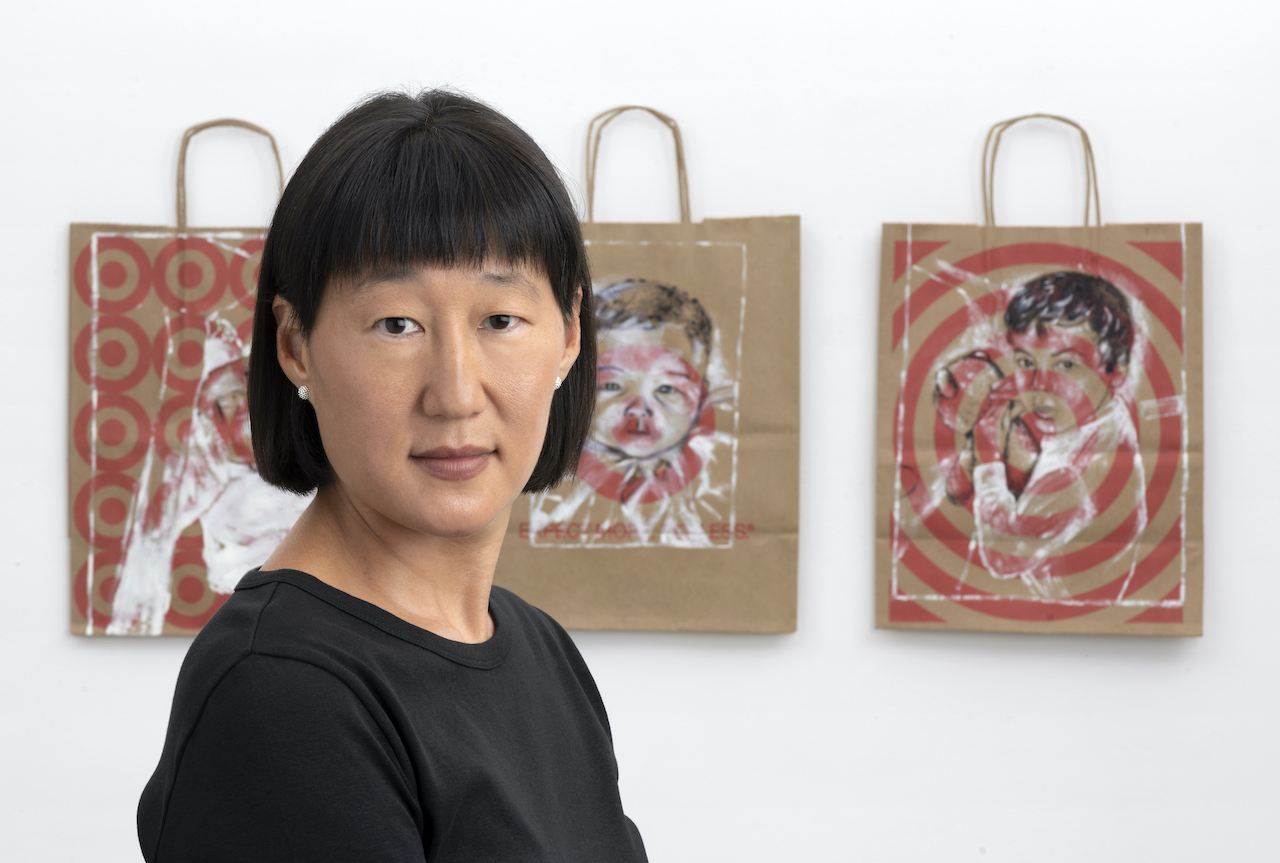
When the Weisman Art Museum opens back up on January 19, 2022 after being closed for maintenance since May, it will present a new solo exhibition by Minneapolis-based artist Megan Rye, called Foundling: 100 Days. The exhibition is made up of portraits drawn from referral photographs, which are used in the international adoption process to show a new family how their waiting child looks. They are presented on Target shopping bags.
“It’s a really important and powerful document,” Rye says. “Often they are the only photographs that are ever taken of the child in their home countries. And it’s often the only tangible physical item aside from the clothes on their back that they have.”
An international adoptee herself, Rye was born in Seoul, Korea. When she was adopted, she became the first grandchild on both sides of her new family, and later one of her mother’s sisters also adopted a child internationally.
“I have always been a very wanted child in my family,” Rye says. “Adoption has always been very embraced in our family.” Now, Rye has a family of her own, working as an artist in Minnesota, where she grew up and moved back in 2000 to pursue her Masters in Fine Arts in Painting from the University of Minnesota, after first attending the Rhode Island School of Design from their Rome campus. Since making Minnesota her home, Rye has become firmly established, being awarded numerous awards and fellowships from the Jerome Foundation, the McKnight Foundation, the Bush Foundation, as well as Minnesota State Arts Board grants. Her work is represented by the Forum Gallery in New York.
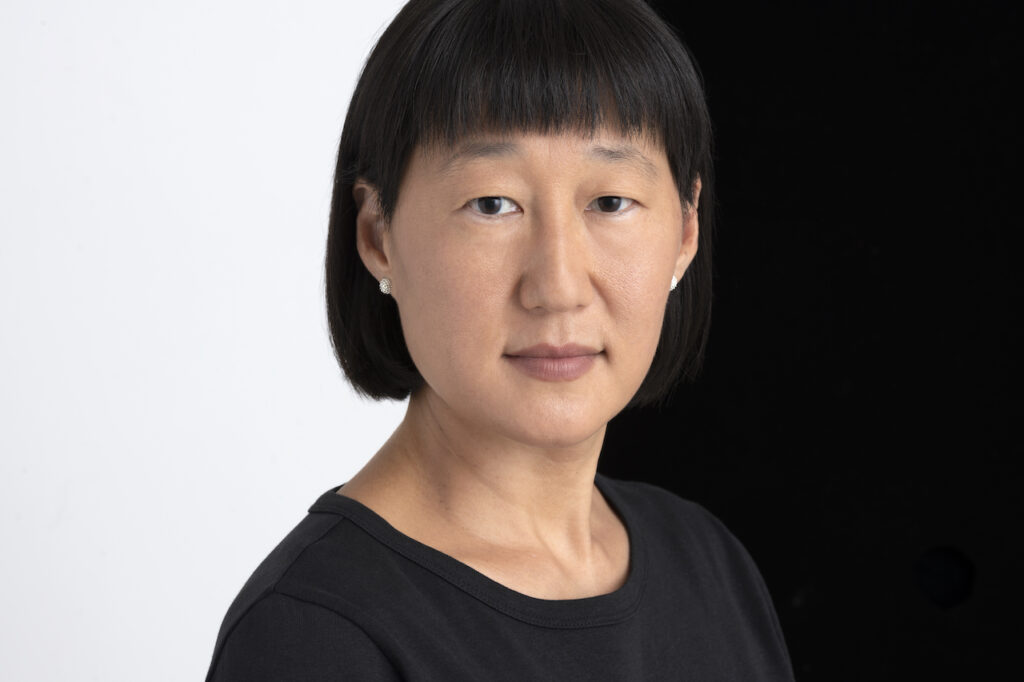
Rye says the glimmer of the project came to her shortly after her daughter was born, in 2016, after having had her son two years earlier, in 2014.
“I was flipping through my photo album just randomly one day after my daughter was born,” Rye recalls. “And I came across these referral photographs of myself. I’ve always been very aware that they’ve been in the photo album, but somehow, in that moment in my life, they were really powerful.”
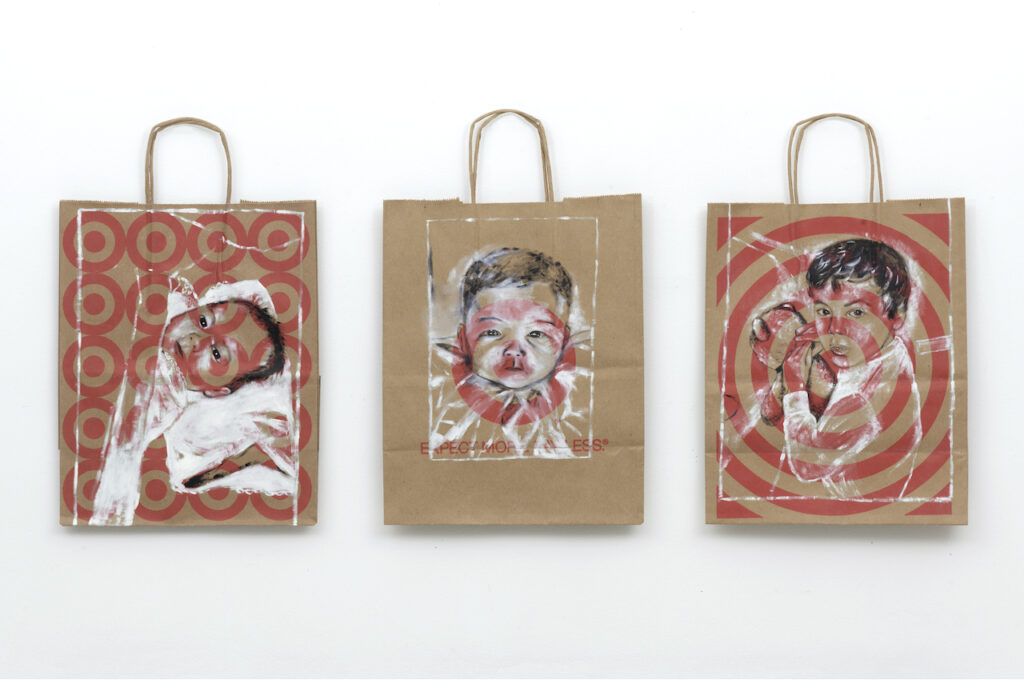
Rye was struck by how much information she had of her daughter—3D images of an ultrasound, handprints, footprints, measurements, locks of hair, and all sorts of other data and also paraphernalia from the hospital. She even had the blankets that her daughter had been wrapped in during her first days on this earth. This was in contrast to what she knew of her own early life.
“These little teeny black and white photographs were all I had for my entire time in life in Korea,” Rye says. Her first seven and a half months were spent in that country, yet all she had from that time were tiny images, and no access to any information, her birth family, or people with whom she had spent time. “I realized that there was a story to tell with these images,” she says.
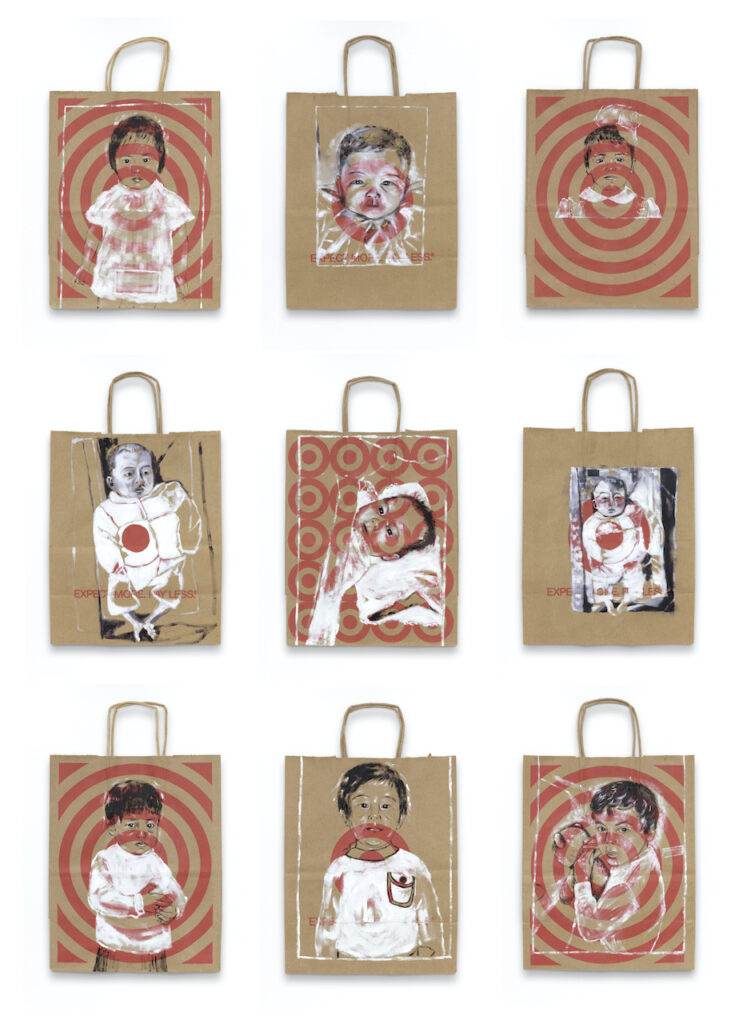
Rye decided she wanted to create 100 portraits based on referral photographs. She chose 100 specifically because in Korea, where many children are adopted from in Minnesota, they celebrate a child’s 100th day of life on earth. “And obviously, in pre-modern times before modern medicine, surviving into your 100 day was very significant. Then there’s the hope that you would survive much longer,” she says. “So I did 100 portraits to honor this tradition in Korea, as well as honor the fact that there are so many Korean adoptees in this project.”
Rye went to her friends, neighbors, and people in her social circle first for the project. She’d reach out to folks she knew who had been through the adoption process and ask if they’d be comfortable sharing their referral photograph. She reached out to her cousin, who had been adopted from Romania, and other people she had grown up with. Soon, however, she realized she would need to reach beyond her own friends and family in order to get to 100 portraits. So she asked people who were already in the project to share what she was doing with others, in order to find more participants.
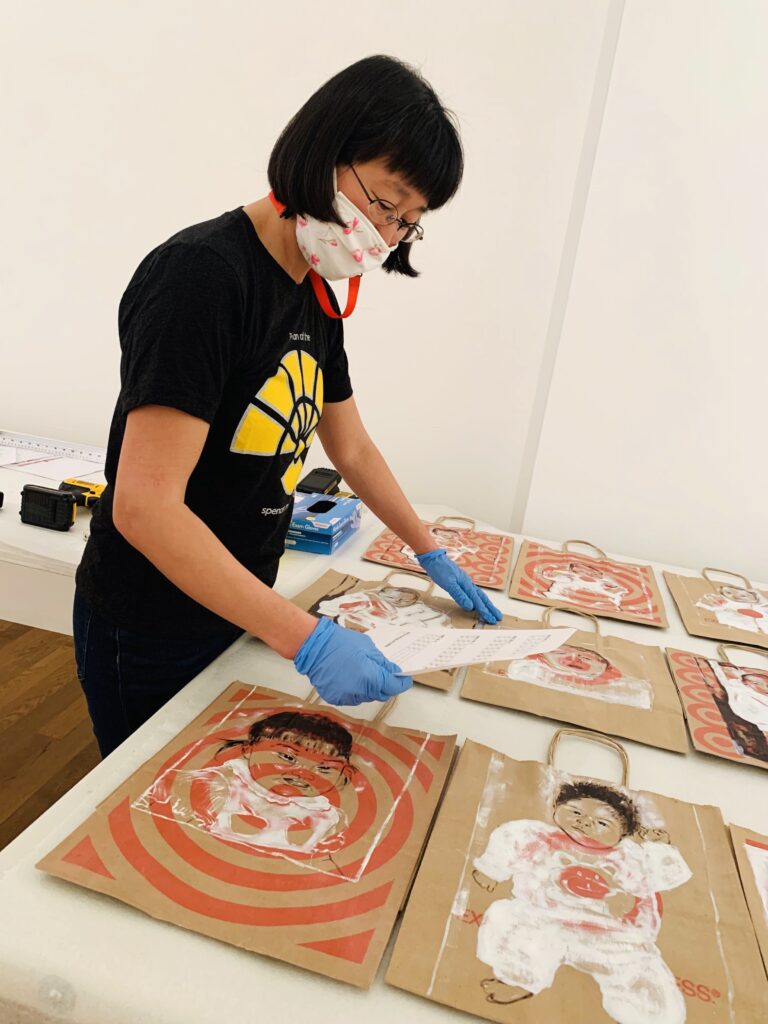
The portraits are all painted in black and white oil paint on Target bags. Rye was drawn to the humble, utilitarian surface of the brown butcher paper. “Somehow the plain white piece of paper or the plain white canvas just did not seem special enough or unique enough for this project,” Rye says. “I thought that this bag is an interesting way I could make a connection between Minnesota adoption stories and a sort of a logo or an icon of Minnesota.” She also liked how the bullseye of the Target logo reminded her of the South Korean Flag, in recognition of the disproportionate number of South Koreans in the project.
Besides the portraits, the exhibition will include stories from the adoptees themselves. When the project first debuted at the University of Kansas, stories by the adoptees and their families were shared in binders that visitors could peruse throughout the exhibition. At the Weisman, there will be a no-touch option to experience these stories, Rye says, because of COVID-19. Currently the stories are shown on a video monitor installed in the gallery, with excerpts and quotes from interviews with the participants.
Rye says she feels indebted to all of the international adoptees who put their trust in her for the project, and yet its message is for the public as well. “This project is really an unequivocal and unwavering statement in support of America as a nation of immigrants,” she says. “I think that is our who we are and our strength.”
Foundling: 100 Days is on view at the Weisman Art Museum from January 19-May 22, 2022. More information at wam.umn.edu.